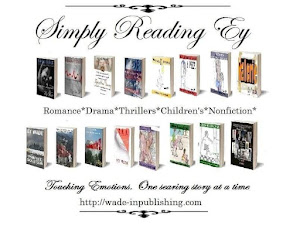These are the encouraging words of my publisher at Inknbeans Press, yes, encouraging because it lets me know I got the point across. More important, it made Mr. Frank MuRong chuckle. This fellow cares none about your feelings. Mr. MuRong is the father of Paisley, one of the main characters from When Clouds Touch. He's stubborn, rude, opinionated, and dislikes Malachi, the love of Paisley's life.
When Clouds Touch is the embodiment of a story of soul mates, Paisley and Malachi.
Destined
to meet since before birth, their story wraps us somewhere between
loving and caring, wanting the best for someone, while wanting to see
them happy, even when it is risky and they must obey the demands of
family.
Paisley,
a woman of Japanese decent, living with Albinism and heart disease, is
meek, yet makes no apologies for seeking what she yearns. Hiding behind the protective fold of her wagasa, she
yearns for freedom from her overprotective parents and the love of a
man she's known only in her dreams, even at the cost of her health.
Malachi,
a man who has visions of meeting an elusive shadow, uses his sense of
humor and sensitive side to build their relationship. He's determined
to win her love, even against the wishes of her parents.~
In a few days Mr. MuRong and his lovely wife will be a guest In The Chair and they will shed more light on their hard to swallow personality.
Amused and wanting to know more about my publisher's feelings for this couple, I asked her if I had given them any redeeming qualities.
"As for her parents, there were no redeeming qualities. I couldn't even excuse them as loving their daughter and wanting the best for her, because they only wanted the best for themselves."
 Honestly, I couldn't write the MuRongs differently. As a writer, we all understand how this happens. The character comes out and well, shows their true character. You can try all you want to make them different, but somewhere in the novel, the real them is exposed. That's the type of people they showed themselves to be, dedicated and overzealous in the protection of their daughter. My next question was: Does it
make the book seem bad? Does it work? And when your publisher comes back with a statement like this-
Honestly, I couldn't write the MuRongs differently. As a writer, we all understand how this happens. The character comes out and well, shows their true character. You can try all you want to make them different, but somewhere in the novel, the real them is exposed. That's the type of people they showed themselves to be, dedicated and overzealous in the protection of their daughter. My next question was: Does it
make the book seem bad? Does it work? And when your publisher comes back with a statement like this-"Oh, absolutely. It makes Paisley and Malachi's plight all the more powerful. This is probably the best thing you've ever written, it's like origami, perfectly folded into delicate layers that create a complex yet simple image. It's a touching and beautiful story. I hope you're very proud of it."
You know it works.
- What is your reaction when someone tells you they don't like your characters?
- Will it make you change things about them?
Please visit the blog and enjoy excerpts, sign up for emails and hopefully answer the survey.































4 comments :
If someone said they hated my character, I would shrug my shoulders. You see, as much as I value people's opinion of my books and characters, it is just that, an opinion. Now if it were a character that I wanted to be hated, then like you, I would be ecstatic.
Thanks for commenting, Robin.
I'm with you. I love when everything hits the way I wanted .
To get such a strong reaction (and one you intended), means you've done your job. Or at least I think so. I'm really looking forward to reading this book.
Thanks, Laurie. I'm excited for you to, so I can hear your reaction.
Post a Comment
My Impression Counts-first step in...last step out